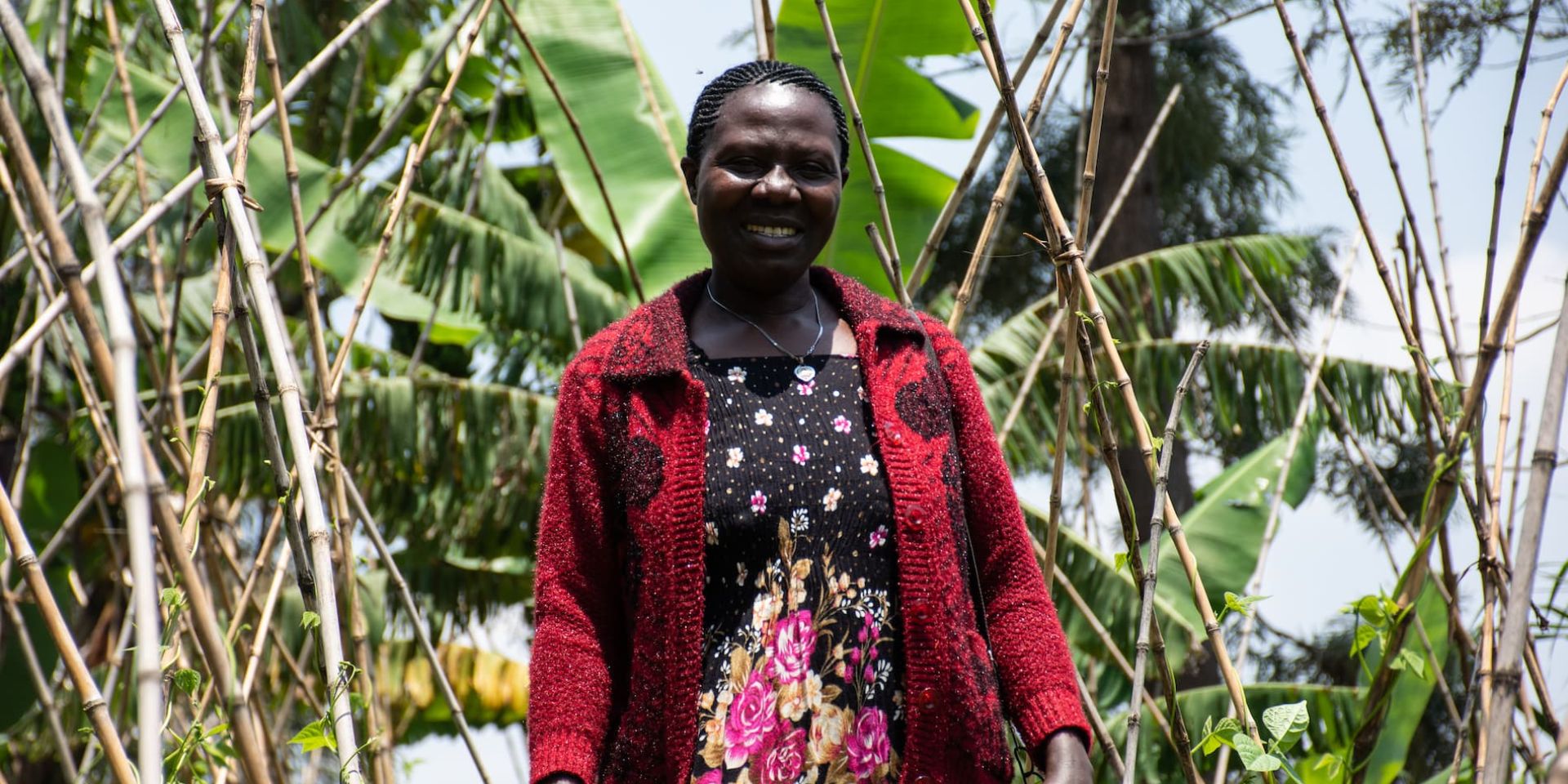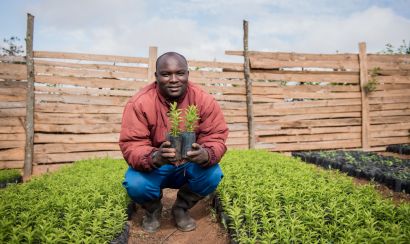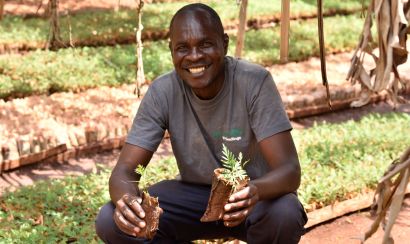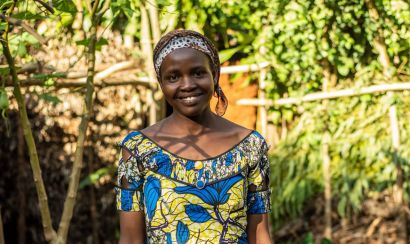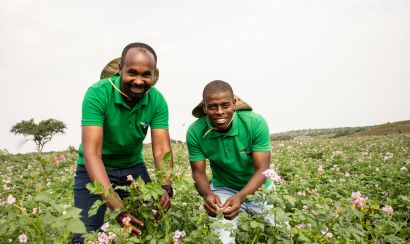A field officer’s mission: Planting the seeds of climate resilience within her community
“Agriculture is the backbone of our country Rwanda,” says Alphonsine Nyiransabimana, a field officer for One Acre Fund in Rutsiro, a district that overlooks Lake Kivu and beyond to the Democratic Republic of Congo. She looks after 561 farmers across the region, helping them to increase their harvests year by year.
“I like to see farmers have enough food at home and to be able to sell the surplus – that is the fruit of my job,” says Alphonsine .
“The effort of One Acre Fund gives me hope of a productive agriculture – I hope in the next 10 years, agriculture in Rwanda will be the first investment sector and Rwandans will know that agriculture can provide money like any profession,” says the 52-year-old.
Alphonsine wants to contribute to this mission by helping farmers access credit to make crucial investments that help them to earn more and adapt to extreme weather caused by climate breakdown.
“I am worried about climate change – we are experiencing drought in many regions of my country,” she says.
That’s why Alphonsine believes it’s essential that farmers can access drought-resistant seed varieties and grow different crops through credit from One Acre Fund. Rather than depending on one crop, a diverse system of plants, trees and livestock can better cope with unpredictable and erratic weather.
As a farmer herself, she needs no motivation to help her fellow smallholders and has close relationships with them.
“My farmers are my best friends,” says Alphonsine . This is why it’s so important to her that farmers have profitable harvests, can repay their credit and are able to reinvest in their farming. “It is a joyful day when they announce that all my farmers repaid their loans – I always celebrate with my family,” she says.
“The results from my work are improving the lives of my farmers,” says Alphonsine.
Since she became a field officer, like many other farmers who work with One Acre Fund, she has improved her own harvest. The benefits of this have been transformative for Alphonsine.
“I was also able to build a new house, I installed electricity and installed running water at home,” says Alphonsine proudly.
The future is bright for her and her children: “My two children have completed their secondary school. One got married and I am planning to send another one to university.”
In her own work, she plans to be able to serve more farmers every year and respond to their needs better. For this, she hopes to be able to buy a motorbike to get around quicker and visit more farmers.
“My role is to always make sure I am serving my farmers better.”
